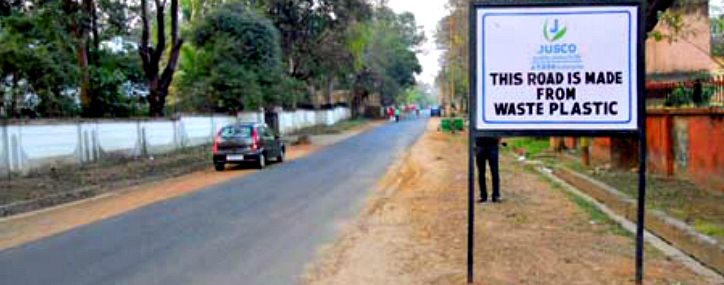Trash into treasure
May 10, 2017 | Expert Insights

Syria, the war torn country, is facing a massive crisis of resources where even the basic needs of food and medication to its citizens are not been met with. Reports on the 9th of May 2017 state that the civilians have made their own fuel from waste plastic by using the process of fractional distillation. This process of converting trash into treasure has been examined in India by a team of researchers in 2014 which was successfully accomplished. In 2015, a road in Jamshedpur stretching 12-15 kms was made of plastic using bitumen technology on waste plastic.
Plastic Waste Management Rules 2016
The Plastic Waste Management Rules in India was amended in 2016 with a vision to comply with the Swacchh Bharat campaign of Prime Minister Narendra Modi. It stated that the ban of plastic in all forms throughout the country was impractical unless a complete substitute for it was found. Hence it aimed at improving the waste management system in the country.
How can waste plastic be used effectively?
More than 15,000 tonnes of plastic waste is generated in India everyday, of which 6,000 tonnes remain littered and uncollected. The use of waste plastic in constructing roads is considered to be environment friendly, quality oriented and cost effective. However, the problem of leaching may be encountered during the first rain and the process of cleaning it up may become tedious. Making fuel out of plastic may be considered a revolution in energy generation and can reduce the dependency on imports. The government can increase the thickness of plastic bags from 40 to 50 micron, so that its price may go up, which would decrease the tendency of providing free plastic bags thereby bringing down its usage.
ASSESSMENT
Syria in its period of grave necessity of resources has hunted for cost effective alternatives to sustain itself. Though India had discovered the process of making fuel from waste plastic, there has not been large scale implementation of it throughout the country. Considering the scarcity of fuel and the exorbitant price paid for it as imports, this new technology should be soon executed. Not only will this be a replacement to fuel and roads but will also reduce the landfill space as 90% of municipal waste is plastic.








Comments